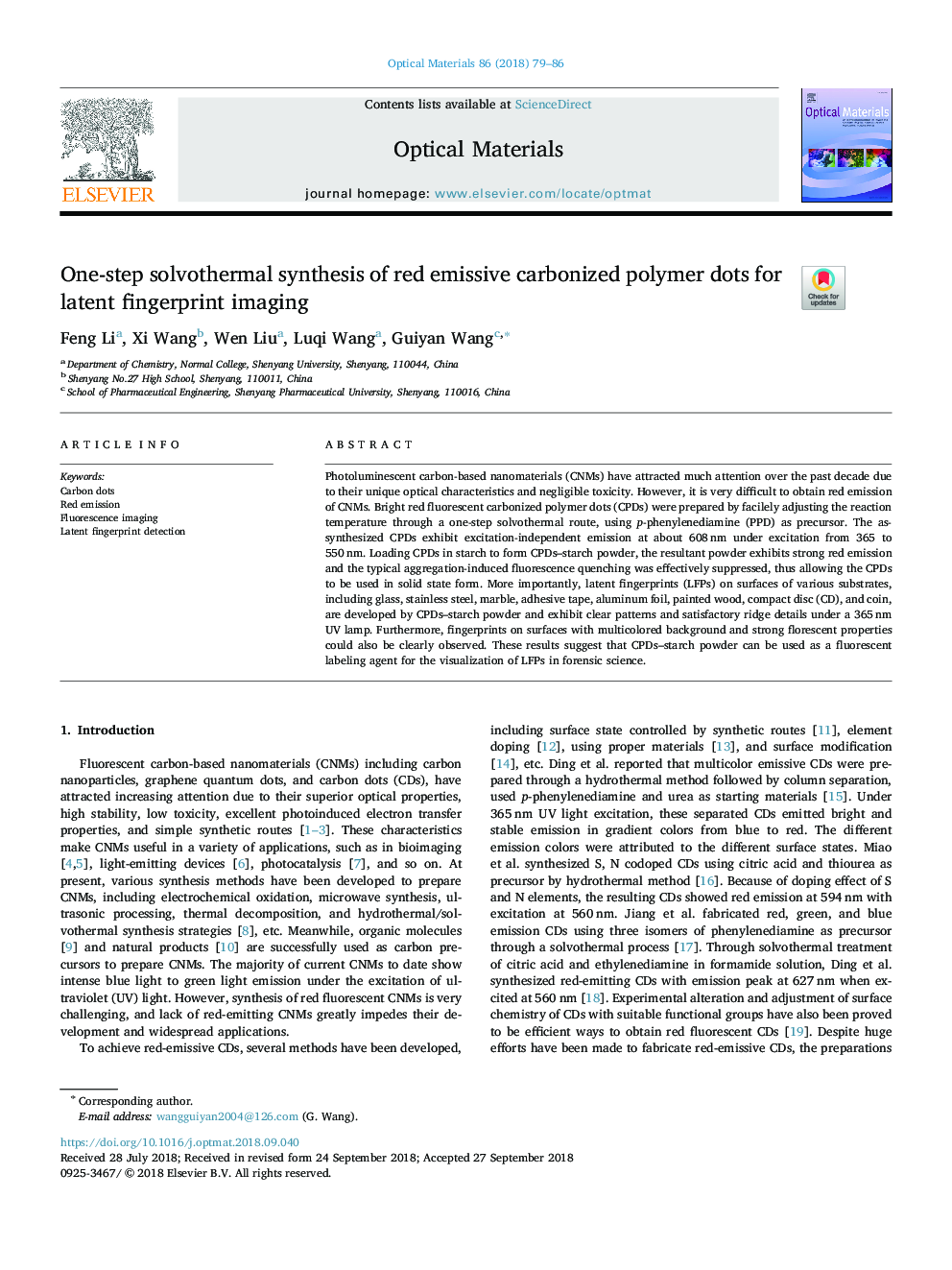| Article ID | Journal | Published Year | Pages | File Type |
|---|---|---|---|---|
| 11026734 | Optical Materials | 2018 | 8 Pages |
Abstract
Photoluminescent carbon-based nanomaterials (CNMs) have attracted much attention over the past decade due to their unique optical characteristics and negligible toxicity. However, it is very difficult to obtain red emission of CNMs. Bright red fluorescent carbonized polymer dots (CPDs) were prepared by facilely adjusting the reaction temperature through a one-step solvothermal route, using p-phenylenediamine (PPD) as precursor. The as-synthesized CPDs exhibit excitation-independent emission at about 608â¯nm under excitation from 365 to 550â¯nm. Loading CPDs in starch to form CPDs-starch powder, the resultant powder exhibits strong red emission and the typical aggregation-induced fluorescence quenching was effectively suppressed, thus allowing the CPDs to be used in solid state form. More importantly, latent fingerprints (LFPs) on surfaces of various substrates, including glass, stainless steel, marble, adhesive tape, aluminum foil, painted wood, compact disc (CD), and coin, are developed by CPDs-starch powder and exhibit clear patterns and satisfactory ridge details under a 365â¯nm UV lamp. Furthermore, fingerprints on surfaces with multicolored background and strong florescent properties could also be clearly observed. These results suggest that CPDs-starch powder can be used as a fluorescent labeling agent for the visualization of LFPs in forensic science.
Related Topics
Physical Sciences and Engineering
Materials Science
Ceramics and Composites
Authors
Feng Li, Xi Wang, Wen Liu, Luqi Wang, Guiyan Wang,
